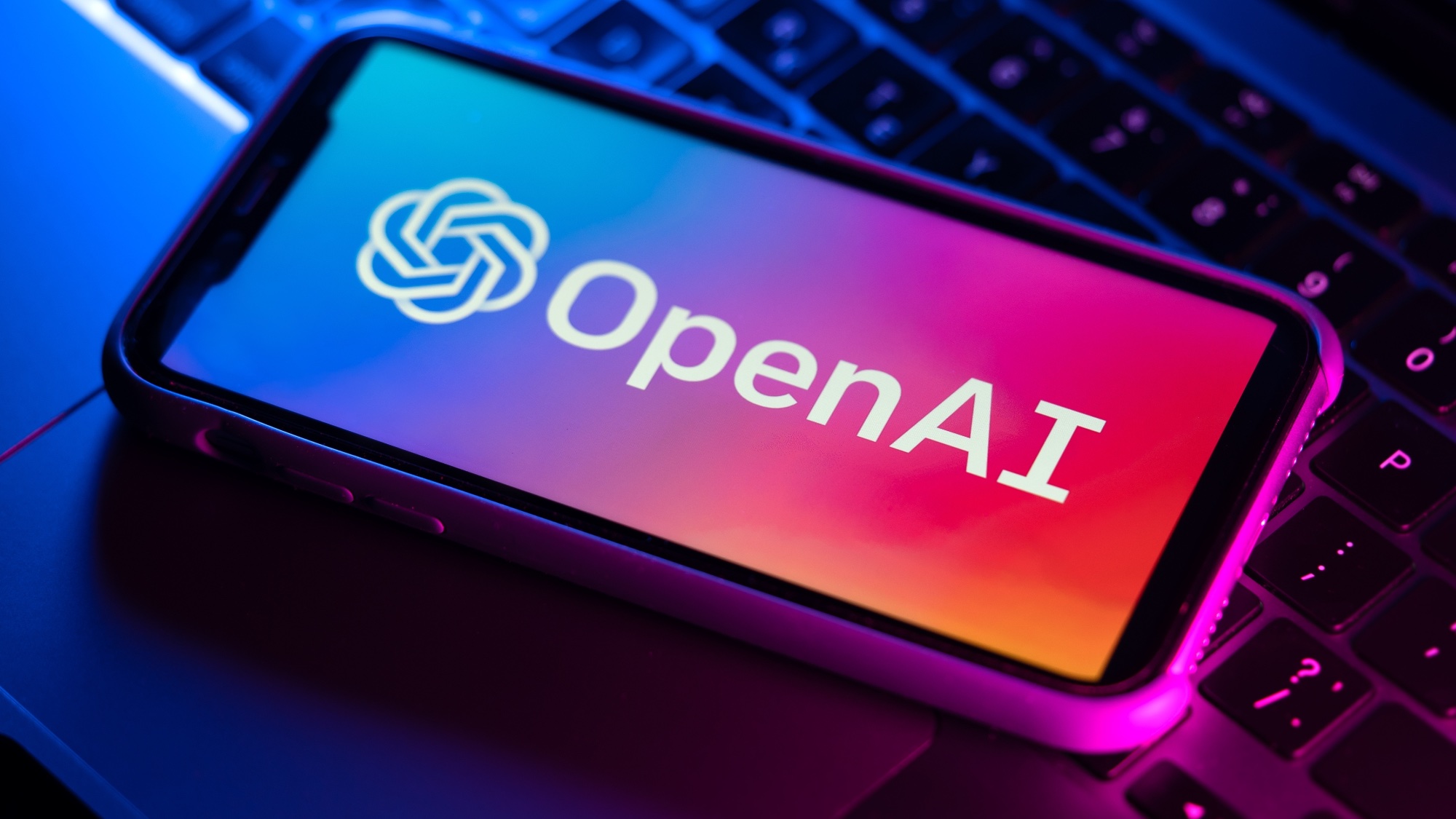OpenAI says ChatGPT will be so good within a year we will talk to it like a human
Would you work with AI?

Here at Tom’s Guide our expert editors are committed to bringing you the best news, reviews and guides to help you stay informed and ahead of the curve!
You are now subscribed
Your newsletter sign-up was successful
Want to add more newsletters?

Daily (Mon-Sun)
Tom's Guide Daily
Sign up to get the latest updates on all of your favorite content! From cutting-edge tech news and the hottest streaming buzz to unbeatable deals on the best products and in-depth reviews, we’ve got you covered.

Weekly on Thursday
Tom's AI Guide
Be AI savvy with your weekly newsletter summing up all the biggest AI news you need to know. Plus, analysis from our AI editor and tips on how to use the latest AI tools!

Weekly on Friday
Tom's iGuide
Unlock the vast world of Apple news straight to your inbox. With coverage on everything from exciting product launches to essential software updates, this is your go-to source for the latest updates on all the best Apple content.

Weekly on Monday
Tom's Streaming Guide
Our weekly newsletter is expertly crafted to immerse you in the world of streaming. Stay updated on the latest releases and our top recommendations across your favorite streaming platforms.
Join the club
Get full access to premium articles, exclusive features and a growing list of member rewards.
OpenAI says ChatGPT as we know it today will be seen as “laughably bad” when we look back at the artificial intelligence chatbot in the future.
Brad Lightcap, COO of the AI lab, predicts we will speak to the AI chatbot like a human and treat it like a teammate in the future, seeing it as no different to any other colleague within a decade.
There is speculation OpenAI is on the verge of launching GPT-5, which CEO Sam Altman has described as significantly more intelligent than GPT-4, the AI model that powers the paid-for version of ChatGPT and Microsoft Copilot.
Lightcap said during a panel event on AI at the Milken Institute: "In the next couple of 12 months, I think the systems that we use today will be laughably bad.” Lightcap’s comments back up remarks by Altman last month where he described GPT-4 as the “dumbest model any of you will ever have to use'.
What can we expect from ChatGPT version 5?
A conversation with OpenAI on what to expect in the next 12 months- today's systems are laughably bad- ChatGPT not long term engagement model- models capable of complex "work"- like a great team mate working with u- shift towards verbal interfaces & beyond, Multimodality pic.twitter.com/XW91fNNceYMay 7, 2024
ChatGPT has evolved significantly since it first launched in November 2022, adding a new memory feature, system prompts and of course custom chatbots in the form of GPTs.
Over that time DALL-E has been integrated to allow the creation of images and ChatGPT can also run code snippets, allowing for the creation of graphs and other features.
The biggest change has been in the underlying model — essentially the brain of the operations — moving from GPT-3 to GPT-4 and the various versions of that model. This has given ChatGPT the ability to understand images and speech in addition to text and code.
Get instant access to breaking news, the hottest reviews, great deals and helpful tips.
What we are likely to see with a GPT-5 powered ChatGPT is more input types, including video and music, as well as a move from chat to agents — where the AI can interact with other services and perform tasks on your behalf.
What will make GPT-5 so much better?
Remarkable from Sam Altman:“GPT-4 is the dumbest model any of you will ever have to use again.”: pic.twitter.com/APDXe9bh7CMay 2, 2024
GPT-5 will have significantly better reasoning and understanding. It will be able to do "more complex work," according to Lightcap and will be "much more capable". Essentially it will get a step closer to human levels of understanding.
Altman has previously said the goal is to build AGI, or a form of superintelligent that has a deeper understanding of the world than humans but can think like us. He says this will be iterative, with each new model getting closer to that goal.
Lightcap said large language models are moving more towards a "system relationship" with users, making it more of a teammate to help solve problems, changing the way we use the software.
He said that the improvements in reasoning and other capabilities are just the start, adding that "we're just scratching the surface on the full kind of set of capabilities that these systems have.”
More from Tom's Guide
- OpenAI rolls out memory in ChatGPT for all paid users — here's what it means
- Rabbit R1 review: Avoid this AI gadget
- Google Chrome users will soon be able to access Gemini AI directly from the search bar — here's how

Ryan Morrison, a stalwart in the realm of tech journalism, possesses a sterling track record that spans over two decades, though he'd much rather let his insightful articles on AI and technology speak for him than engage in this self-aggrandising exercise. As the former AI Editor for Tom's Guide, Ryan wields his vast industry experience with a mix of scepticism and enthusiasm, unpacking the complexities of AI in a way that could almost make you forget about the impending robot takeover.
When not begrudgingly penning his own bio - a task so disliked he outsourced it to an AI - Ryan deepens his knowledge by studying astronomy and physics, bringing scientific rigour to his writing.
 Club Benefits
Club Benefits




















